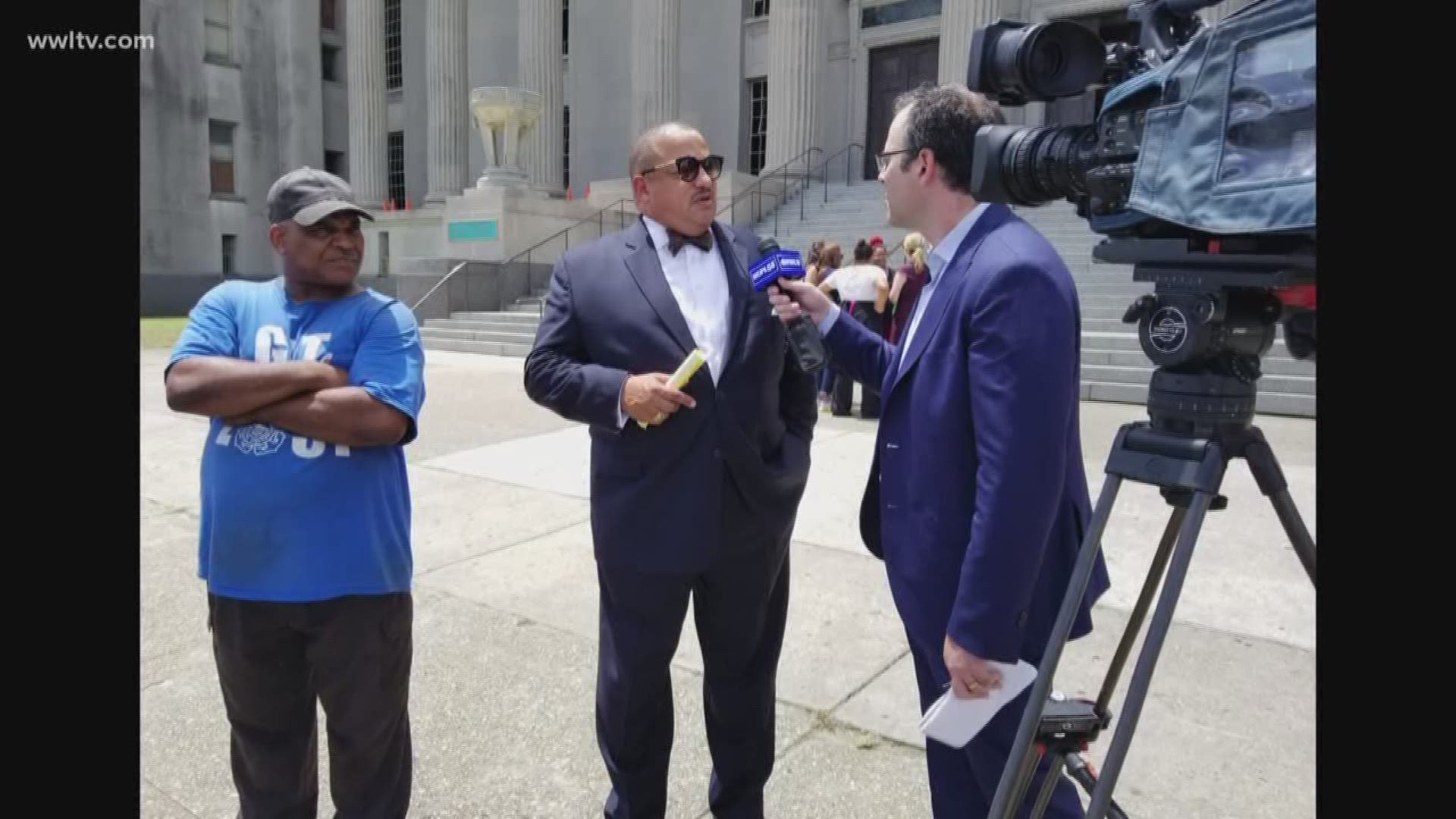A judge has again delayed the start of a trial in a 1991 sexual battery case. Tuesday Judge Keva Landrum-Johnson said the delay was due to motions made by both the prosecution and the defense. A day earlier she delayed the trial, citing a story on WWL-TV that detailed the extensive public record of the case could taint the jury pool.
Gerard Ladmirault, 54, was scheduled to go on trial Monday morning for allegedly forcing a 14-year-old girl to perform oral sex on him on Oct. 16, 1991. The alleged victim, LaToya Gaines, is now in her 40s and spoke to WWL-TV about her case.
Today's story continues under David Hammer's Investigative video
On Monday, Landrum-Johnson met for several minutes with prosecutors and Ladmirault’s defense attorney, David Belfield. That conversation was in a “sidebar,” meaning it was not on the record, but then Landrum-Johnson went on the record to say that both sides expressed concerns that WWL-TV’s coverage of the case, including reports from the courthouse Monday morning, would make it hard to select jurors who had not been influenced by the report.
The court did not call any prospective jurors to see if it could select a panel Monday.
Both Belfield and the District Attorney’s Office were aware the story would be airing Sunday night and neither side expressed any concerns about the timing to WWL-TV. Belfield was interviewed on camera for the story and said his client was tired of the delays and ready for trial so he could prove his innocence.
It’s unclear how WWL-TV’s reporting would have any different impact on potential jurors than pre-trial coverage of countless other criminal cases over the years. One potential difference: There is an extensive public record in the state’s case against Ladmirault because it went to trial in 2015 and again in 2016. Both of those trials ended in hung juries, meaning the case has never been decided.
Jurors for the current trial are not supposed to know that the case has been tried before.
Those previous trials were held before Judge Laurie White, but the case was then transferred to Landrum-Johnson’s section for a third trial.
The judge said she would give both sides an opportunity to select jurors who had not seen the WWL-TV report. That is already a typical part of the jury selection process known as voir dire, in which the prosecution and defense can reject jurors who have potential conflicts of interest or preconceived notions about the case.
WWL-TV Legal Analyst Pauline Hardin said she understands the judge's concern about media coverage influencing potential jurors, but she said that's what voir dire is for. She also said news coverage rarely prevents the court from seating a fair jury, even when it's extremely high-profile and the coverage is more extensive.
"If I’m the judge I am concerned some prospective jurors may have seen it. But the remedy for that would be to try to pick the jury and find out if any of the jurors did in fact see it or were infected in some way by it," Hardin said.
"Let’s say 15 out of 30 (prospective jurors) have seen the news coverage," Hardin added. Landrum-Johnson "can just call up more people from the jury panel downstairs. To delay it a day doesn’t seem to solve the problem. She’ll still have to ask (jurors) if they’ve seen the story and, if they have, if it prejudiced them against either side."
Another veteran criminal attorney and former prosecutor, Mike Magner, said Landrum-Johnson will likely have to screen potential jurors individually to check if they saw the WWL-TV story and if it influenced them.
"There’s no constitutional right to have a jury that doesn’t know anything at all about the case," Magner said. "The question is, whatever they know, can they put that aside and make their decisions just based on what happens in the courtroom?"

